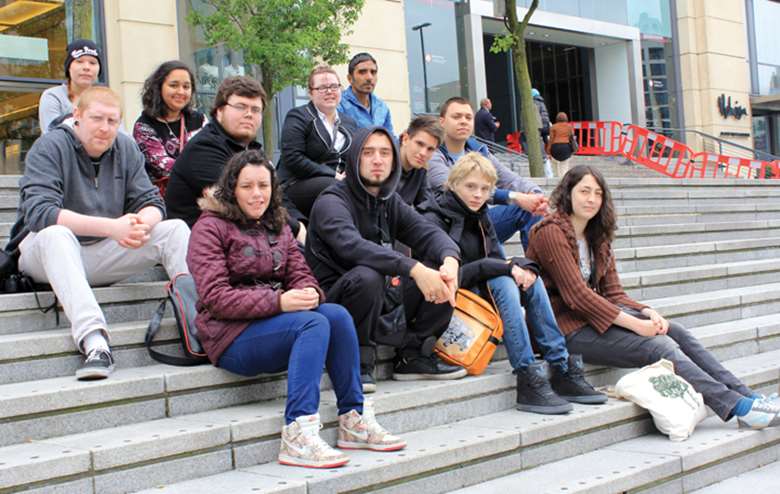How youth board boosts awareness of mental health support needs
Jo Stephenson
Tuesday, November 26, 2013
A youth board in Birmingham is helping to improve children's mental health provision.

Organisation
Birmingham and Solihull Mental Health NHS Foundation Trust
Purpose
To boost engagement of young people in services and raise awareness of young people's mental health issues
Funding
From a variety of sources including the mental health trust itself, grants, research funds and commissions. Successful funding bids include one with Groundwork West Midlands for £39,000 from the Big Lottery's Target: Wellbeing fund
Background
More than 75 per cent of mental health problems start before the age of 25. With statistics like this in mind, Birmingham and Solihull Mental Health Trust was keen to get more young people involved in its work and reach out to those who might need mental health support.
An initial project in 2007 to develop a website and film led to the creation of a youth board, which has gone from strength to strength and now plays a pivotal role in the life and work of the trust.
Action
The youth board is an essential part of the trust's wider Youthspace programme to improve mental health services for young people, working with a range of partners including the Prince's Trust. The board currently has more than 50 members aged 16 to 25 with a core group of about 15. The majority - about 72 per cent - have experienced mental health problems themselves while others have friends or family with mental health problems or a keen interest in mental health.
The group has helped design and deliver a wide range of projects. For example, members played a role in the development of a new inpatient unit for young women aged 16 and 17, including devising a recruitment and induction programme for up to 30 staff. Drawing on personal experience, the group has helped shape practice on wards and ensured an overall culture where young patients feel confident in giving feedback on services, adds Pip Hoskins, partnership development project manager. They were behind a virtual tour of the ward so young people and their friends and family can see what it's like, meet key team members and understand their different roles.
The board has helped evaluate mental health and other youth services and also developed a series of e-learning modules for professionals that work with children and young people.
Having a dedicated manager in the form of Hoskins to facilitate and support this work has been vital, stresses public health research programme manager Dr Paul Patterson. "Over the years we have learned the importance of engaging young people in projects they actually want to be involved in, letting them take the ball and run with it," he concludes.
Outcome
The youth board has played a key role in projects with positive outcomes for young people's mental health, including helping deliver peer education on mental health in schools and a campaign to boost early diagnosis and treatment of psychosis among young people.
Feedback from the e-learning modules developed by the group show they are a valuable training tool with 100 per cent of those who tested the first module agreeing or strongly agreeing that it would increase awareness of young people's mental health issues. All agreed or strongly agreed it would help professionals feel more confident in identifying potential mental health problems and would encourage them to support young people to seek help when needed.
Meanwhile, being involved in the board has given individual young people the confidence and skills to achieve their goals with about two thirds of members currently in employment or education. Since joining the board, four of its members who were previously not in education, training or employment have moved into education while 11 have moved into employment.
RAISING AWARENESS AMONG PROFESSIONALS
Feedback from mental health clinicians, teachers, youth workers and voluntary organisations that tested the impact of a mental health e-learning module developed by the Youth Board
WILL HELP INCREASE AWARENESS OF MENTAL HEALTH ISSUES FOR YOUNG PEOPLE
Agree - 39%
Strongly agree - 61%
WILL HELP PEOPLE FEEL MORE CONFIDENT IN IDENTIFYING POTENTIAL MENTAL HEALTH PROBLEMS
Agree - 60%
Strongly agree - 40%
WILL ENCOURAGE PEOPLE TO SUPPORT YOUNG PEOPLE TO SEEK HELP WHEN THEY NEED IT
Agree - 40%
Strongly agree - 60%
Source: Birmingham and Solihull Mental Health NHS Foundation Trust.
If you think your project is worthy of inclusion, email supporting data to ravi.chandiramani@markallengroup.com




